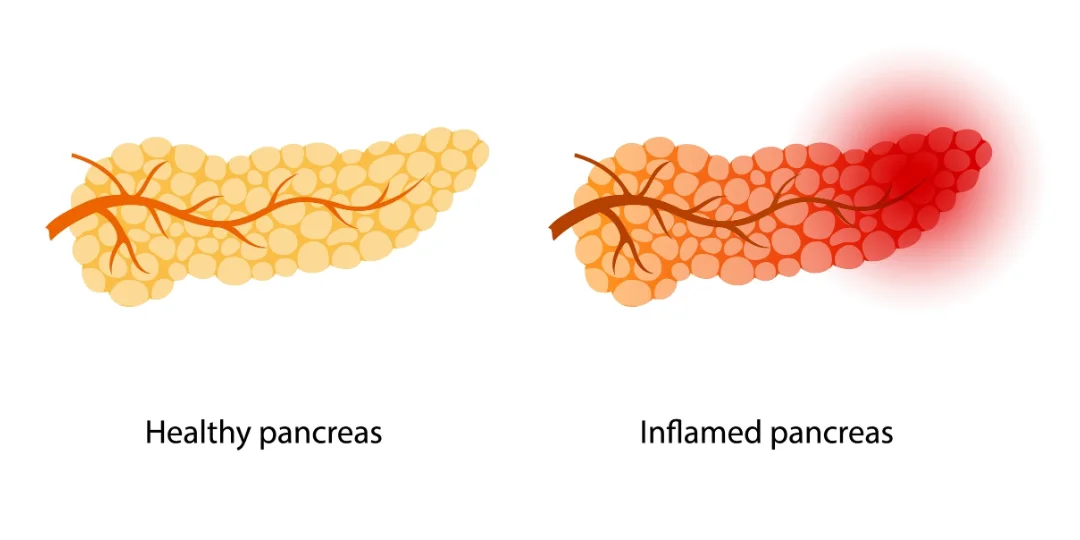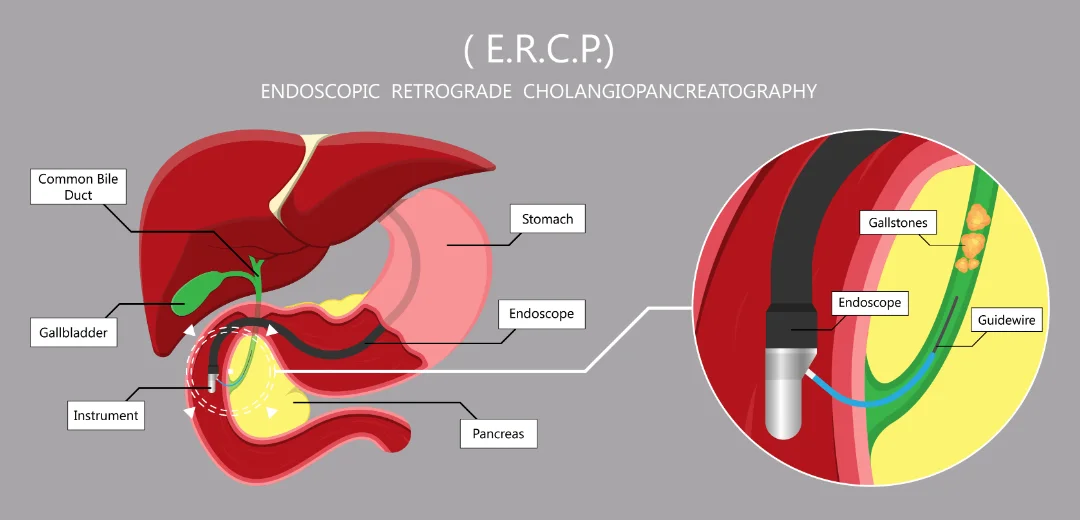What is Pancreatitis?

Pancreatitis refers to the inflammation of the pancreas, a deep-seated organ found behind the stomach in the upper abdomen. The pancreas is responsible for producing enzymes (lipase, protease, amylase) that help with digestion and hormones (insulin and glucagon) that help regulate blood sugar.
- Acute pancreatitis — the pancreas becomes red and swollen over a short period of time and eventually subsides.
- Chronic pancreatitis — a progressive inflammatory disorder that could severely damage the pancreas over time, affecting its ability to produce necessary enzymes and hormones.
What are the common causes Acute / Chronic Pancreatitis in Singapore?
The most common cause of acute pancreatitis is gallstones. Chronic pancreatitis is often a result of excessive alcohol drinking. Other possible causes of pancreatitis are:
- High triglyceride levels in the blood
- High levels of calcium in the blood
- Pancreatic cancer
- Abdominal surgery
- Cystic fibrosis
- Injury or trauma to the abdomen
- Obesity
- Infection
It is important to note that there are cases where the cause of acute/chronic pancreatitis are unknown, and this is referred to as idiopathic pancreatitis.
What are the common symptoms of Pancreatitis in Singapore?
The main symptom of pancreatitis is pain in the upper or middle of the abdomen, which worsens after eating or drinking.
Acute pancreatitis symptoms:
- Abdominal pain that radiates to your back
- Abdominal tenderness
- Upper abdominal pain
- Rapid heartbeats
- Nausea and vomiting
- Fever
Chronic pancreatitis:
- Unexplained weight loss
- Oily, smelly stools
- Upper abdominal pain
If you experience any of these symptoms, please consult your Gastroenterologist for a proper diagnosis.
Is Pancreatitis life-threatening?
In most cases, acute pancreatitis resolves on its own and the pancreas heals. However, some cases of untreated pancreatitis could result in life-threatening complications, such as organ failure.
How is Pancreatitis diagnosed in Singapore?

During your first consultation, your Gastroenterologist will get a detailed understanding of your symptoms and may perform a physical exam. Other diagnostic tests will be run, such as:
- Blood tests — blood tests are run to check for elevated levels of pancreatic and liver enzymes, as well as to check kidney function.
- Abdominal Ultrasound — to detect any structural abnormalities, and to check for gallstones or inflammation of the pancreas.
- CT Scan — to assess the extent of inflammation in the pancreas.
- MRI Scan — to examine the gallbladder, pancreas and ducts.
- Endoscopic Ultrasound (EUS) — to detect inflammation and blockages in the pancreatic and bile ducts.
- Stool tests — to measure enzyme levels in the body.
Can Pancreatitis be cured?

Mild acute pancreatitis generally subsides in a few days with proper rest and symptom management with medications. Ultimately, treatment depends on what is causing pancreatitis.
- Removal of the gallbladder may be recommended if gallstones are causing pancreatitis.
- Endoscopic Retrograde Cholangiopancreatography (ERCP) may be recommended to treat a narrowing or blockage of the bile or pancreatic ducts causing the pancreatitis.
It is also important to look out for complications of severe pancreatitis, which can include fluid collections around the pancreas (which can get infected), blood vessel problems around the pancreas and increased pressure in the abdomen.
Lifestyle changes play a huge role in managing your pancreatitis symptoms. This includes stopping alcohol and smoking, as well as eating healthy, low-fat and unprocessed foods.
Summary
The pancreas plays an important role in digestion, and pancreatitis could affect the production of enzymes that help with digestion. This could lead to consequences such as diarrhoea, weight loss and malnutrition. Although pancreatitis symptoms generally improve on their own, 1 in every 5 cases can result in life-threatening complications, making a proper diagnosis and speedy treatment paramount.
Dr Benjamin Yip also cautions that cancer of the pancreas, especially in the head region, can cause pancreatitis. Hence, it is important to get a proper and complete assessment by your Gastroenterologist if you are suffering from pancreatitis.
References:
- “Pancreatitis - Diagnosis and treatment.” Mayo Clinic, 24 September 2021, https://www.mayoclinic.org/diseases-conditions/pancreatitis/diagnosis-treatment/drc-20360233. Accessed 30 January 2023.
- “Treatment for Pancreatitis | NIDDK.” National Institute of Diabetes and Digestive and Kidney Diseases, https://www.niddk.nih.gov/health-information/digestive-diseases/pancreatitis/treatment#. Accessed 30 January 2023.

